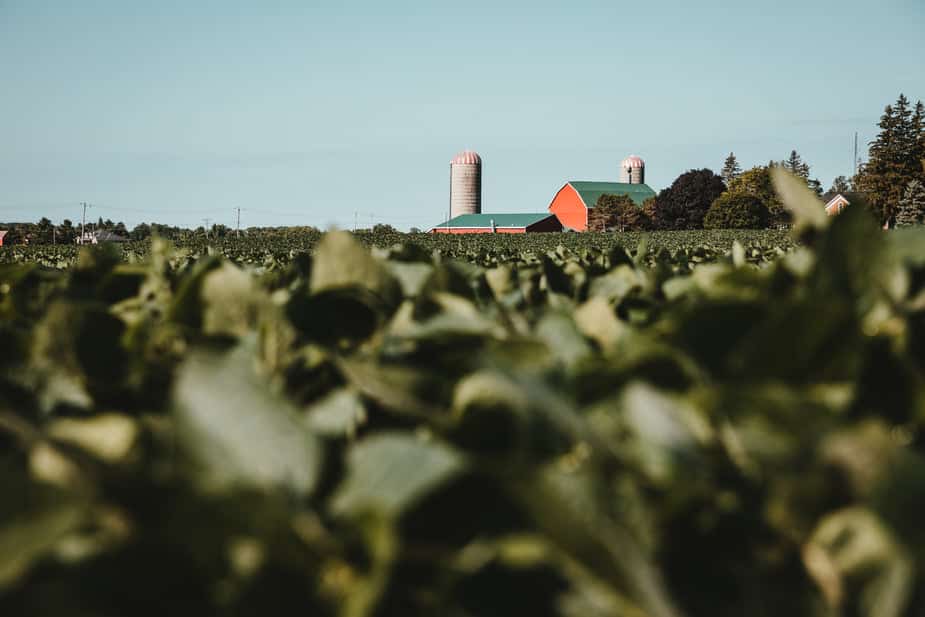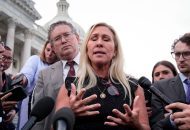We Need to Stand With EPA Science on Crop Protection
COMMENTARY

The last few years have shown us just how fragile our agriculture and food production systems can be. Whether driven by the war in Ukraine, extreme weather events or the COVID-19 disruption, we have seen how important continued access to a safe and affordable food supply is to our nation’s economic well-being. When I served on the House Agriculture Committee and later as secretary of Agriculture under President Bill Clinton, tackling this challenge was the order of the day, which still stands today.
A key component of agriculture’s ability to produce an abundant supply of food and fiber is continued access to safe and effective crop protection tools. These tools, when used appropriately and in accordance with the approved labeling, including pesticides and other crop inputs, help both farmers and consumers by ensuring weed and plant pest control. However, some recent state regulatory actions could threaten farmers’ access to these indispensable tools.
For years, these important crop protection tools have helped farmers by improving yields and enhancing good conservation practices so they can grow more with less. But this is no easy feat. Each year, farmers across the world lose up to 40% of their crops to pests and diseases. Without crop protection tools, like pesticides, this number could double, resulting in lower yields, higher prices and increased food insecurity.
By enabling smart conservation practices such as no-till farming and cover crops, farmers can improve soil health, water retention and carbon sequestration — saving time, money and the environment in the process. Without these tools, reduced yields could require farmers to use much more land to grow the same amount of food, an emerging issue as access to farmland is rapidly decreasing each year. As a result, our ability to supply food would ultimately suffer.
These vitally important crop protection tools go through an extensive review process by the Environmental Protection Agency, ensuring approved products meet rigorous health and environmental safety standards. On average, the development and review of a new pesticide takes 11 years, a significant amount of time when we look at the importance of growing and maintaining our food supply. The result of this process is that farmers gain access to tools that are developed to be safe and effective while being regulated using the best available science and in accordance with their EPA-approved labeling requirements.
Modern science gives farmers many options and choices to produce their crops sustainably, but these producers need to have a predictable regulatory system to give them some certainty in making these critical production decisions. Without these tools, American families will pay more for the food they buy, and our ability to protect both the public health and the environment will be challenged.
The uncertainty created by some state regulations inconsistent with long-time guidance from the EPA jeopardizes farmers’ access to responsible crop protection tools. These actions run the risk of creating an unworkable patchwork of state and local pesticide labels causing confusion and disruption of supply chains.
Given these growing concerns, Congress should consider addressing this issue. The ability of our nation’s farmers to provide reliable access to a safe, affordable and abundant food supply depends on continued access to these safe and effective crop protection tools. It should be made clear that EPA’s rigorous regulatory review process for crop protection tools be upheld, including labels the agency approves. By standing with the EPA’s established science, Congress can safeguard the interests of farmers, protect public health and ensure the sustainability of our food system. It is a responsibility we need to embrace to secure a prosperous future for both agriculture and the health and well-being of all Americans.
Dan Glickman served as secretary of Agriculture from 1995 until 2001. Prior to serving under the Clinton administration, Glickman served 18 years in the House of Representatives as a member of the House Agriculture Committee, House Judiciary Committee and chairman of the House Permanent Select Committee on Intelligence. Currently, Glickman is vice-president of the Aspen Institute, and executive director of the Aspen Institute Congressional Program, a nonpartisan public policy education program for members of U.S. Congress. Glickman is a senior fellow at the Bipartisan Policy Center and can be reached on Twitter.

























